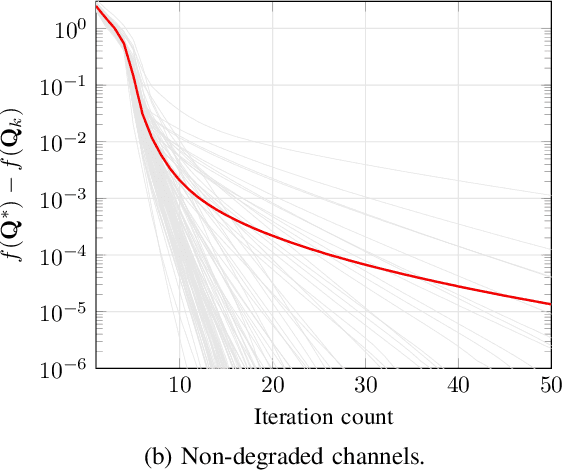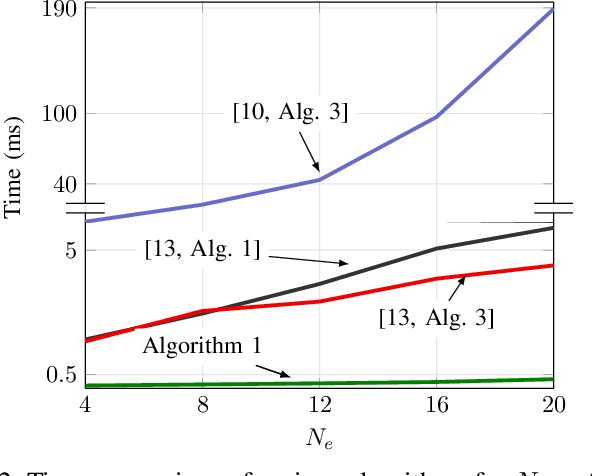On the Optimality of the Stationary Solution of Secrecy Rate Maximization for MIMO Wiretap Channel
Paper and Code
May 24, 2021

To achieve perfect secrecy in a multiple-input multiple-output (MIMO) Gaussian wiretap channel (WTC), we need to find its secrecy capacity and optimal signaling, which involves solving a difference of convex functions program known to be non-convex for the non-degraded case. To deal with this, a class of existing solutions have been developed but only local optimality is guaranteed by standard convergence analysis. Interestingly, our extensive numerical experiments have shown that these local optimization methods indeed achieve global optimality. In this paper, we provide an analytical proof for this observation. To achieve this, we show that the Karush-Kuhn-Tucker (KKT) conditions of the secrecy rate maximization problem admit a unique solution for both degraded and non-degraded cases. Motivated by this, we also propose a low-complexity algorithm to find a stationary point. Numerical results are presented to verify the theoretical analysis.
 Add to Chrome
Add to Chrome Add to Firefox
Add to Firefox Add to Edge
Add to Edge